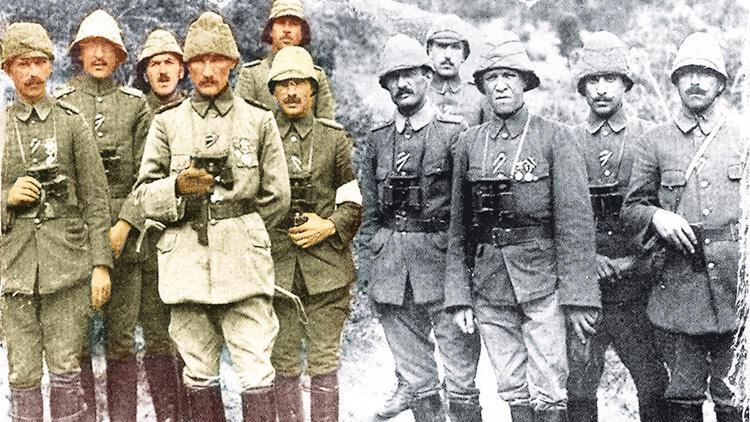
Turkey on March 18 marked the 106th anniversary of the Çanakkale Victory and Martyrs’ Day and commemorated the fallen soldiers who lost their lives during naval and ground battles in Çanakkale (Gallipoli Campaign) during World War I.
President Recep Tayyip Erdoğan marked March 18 during his meeting with the families of fallen soldiers at the State Commendation Medal Ceremony in Ankara.
“I commemorate each of our heroes who wrote the Çanakkale epic, especially our martyrs and veterans. Or, from [battles of] Mohács to Preveza, from the conquest of Istanbul to Çanakkale, from the War of Independence to the landing on Cyprus. We worked day and night to strengthen and grow our state.”
Emphasizing that the Gallipoli Wars have special importance in terms of both being the prelude to the War of Independence and expressing the total uprising of the nation, Erdoğan said, “If that historical epic was not written in Çanakkale and that magnificent victory was not won, God forbid we would have faced a great disaster.”
Memorial ceremonies, which were attended by local authorities, politicians, veterans, NGOs and citizens were held in various provinces of the country to mark the occasion.
In the western province of Çanakkale, wreaths were laid at the martyrs’ monument followed by a one minute silence and the Turkish National Anthem.
In addition to civilian and military officials, Australian Military Attaché Colonel Richard Campbell and Australian Consul General to Çanakkale, Lucas Robson attended the ceremony.
Meanwhile, 17 piles of cannons were fired from the TCG Burgazada frigate.
Tens of thousands of soldiers died in one of the world’s most ferocious battles 105 years ago in the Gallipoli Campaign in Ottoman Turkey during World War I.
The Allied Forces started their attack on March 18 - the day commemorated as the Çanakkale Naval Victory Day - but the waters were filled with a network of mines laid by Ottoman vessels and some greatest battleships sank as a result.
The events leading up to the momentous battle started in February 1915, when Britain and France decided to launch the Gallipoli Campaign to knock the Ottoman Empire out of the war as quickly as possible by reaching and capturing its capital, Istanbul.
Tens of thousands of Turkish nationals and soldiers died, along with tens of thousands of Europeans, plus around 7,000-8,000 Australians and nearly 3,000 New Zealanders.
Victory against the Allied forces boosted the morale of the Turkish side, which then went on to wage a war of independence between 1919 and 1922, and eventually formed a republic in 1923 from the ashes of the old empire.